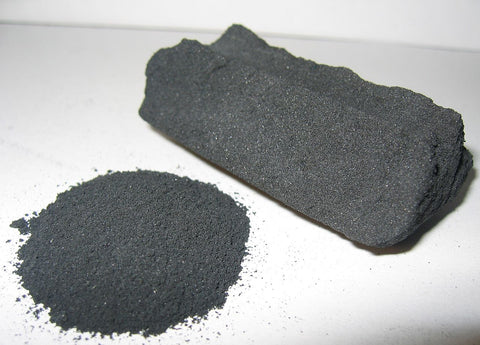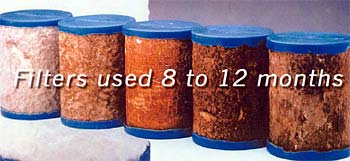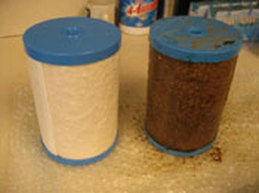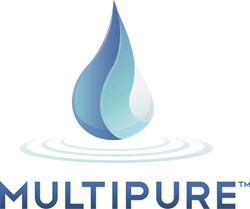You have no items in your shopping cart.
When it comes to one's health, drinking enough water is essential, hence the modern-day obsession with hydration, and that's why you see people carrying around plastic bottles wherever they go.
However, even if the vast majority of people know that staying hydrated is important, many of them are confused with regard to what's the best type of water to drink. I've already covered this issue in my article about the top benefits of filtered water, but there's a catch: okay, water filters are awesome, economical, high tech and all that. But what's up with all that tech palaver about solid carbon block filters? This is a good question, since virtually all Multipure water filtration systems boast their solid carbon block gizmos, but what does it really mean in laymen's terms?
Why Solid Carbon Block Technology?

Here’s the deal: since there are many types of water filters available on the market, you should know what's best for you and your family. And the short answer is that solid carbon block filters are the best of the bunch.
Why? Well, they are outstanding at removing various pollutants, and they excel when it comes to nitrates, (heavy) metals, chemicals, parasites and herbicides. However, and here's the best part, so pay attention: solid carbon block water filters DO NOT REMOVE the good stuff in the water. I am talking about "nutrients", i.e. naturally occurring minerals, which are good (essential actually) for one's health, like potassium, magnesium or calcium. That's why solid carbon block filters are the best, even trumping reverse-osmosis water filters, which are also pretty good, but they tend to remove minerals during the filtration process. Multipure does offer an RO system with their solid carbon block filter integrated -- it's mostly suited for very hard water).
Basically, using a solid carbon block filter you'll drink healthier water, and they would make for your best option, that if you care about your health.
And that's why all Multipure drinking water systems are based on solid carbon block technology, because it makes for the best of both worlds so to speak: they reduce a vast array of contaminants which are harmful to human health, while preserving naturally occurring beneficial minerals essential for our well-being.
How Do Solid Carbon Block Filters Work?
The first solid carbon block filter technology developed by Multipure dates back to the seventies, when the company patented and developed a number of systems aimed at mitigating water pollutants.
This technology consists of three different methods for purifying water: the classic mechanical filtration, chemical reaction and physical adsorption. To make a long story short, that's Multipure's solution for creating an effective drinking water treatment system : there are actually three filters in one. This "three for the price of one" technology incorporated into a single device works great at reducing a wide range of dangerous water pollutants.

Multipure water filters are built using high quality activated carbon (due to its high degree of microporosity, as 1 gram of activated carbon boasts a surface area in excess of 32,000 sq ft as determined by gas absorption), compressed to form a dense carbon block, hence the name.
Now, unlike other water filtration solutions, the solid carbon block technology employed by Multipure works in two ways: first, the water passes through the pre-filter, whose molecules are positively charged, thus attracting negative ions which are present in certain water pollutants (those too small to be removed via mechanical filtering respectively). This clever trick makes for a number of water contaminants to be electro-kinetically absorbed in phase one by the pre-filter.
In phase two, water flows through the actual solid carbon block filter, which is densely compacted; here's where the mechanical filtration takes place, and particles as small as half a micron (to get an idea, 2 microns make for 0.0001 inches) are removed. The idea about using a densely compacted carbon block for filtering water is that this technology provides a huge amount of surface area for both physical and chemical adsorption (this is a process similar to surface tension) to take place.
This innovation works so well, that Multipure water filtration systems using it are certified to reduce up to 65 contaminants.

There's a big difference between marketing claims and proof of performance via, let's say NSF certifications (for further reference, read this article about NSF standards). Multipure's solid carbon block water filters comes with multiple NSF certifications, including the NSF/ANSI 401 standard about Incidental Contaminants / Emerging Compounds, together with the NSF/ANSI Standard 42 (aesthetic effects) and NSF/ANSI Standard 53 (health effects). It's important to remember that carbon block water filter technology requires no electricity to work, does not remove important "nutrients" from the water and it doesn't add silver or salt to the water, like other systems do.
Also, while virtually all solid-carbon-block based water filtration systems on the market are capable of reducing particulates and chlorine from the water, Multipure's patented technology goes one step beyond, and obliterates chloramines (haven't found another carbon block filter that is certified to remove this); volatile organic compounds too (pesticides, herbicides); Giardia and Cryptosporidium (if you're afraid of pathogens in the water, try the Aqualuxe, which comes with NSF certification for Protocol P201, i.e. it's guaranteed to remove bacteria and viruses); endocrine disruptors; turbidity; Trihalomethanes (known cancerigens which are disinfection by-products); MTBE; heavy metals; asbestos; arsenic V (see Aquaperform, that comes with NSF certification to be effective at absorbing that specific compound).

See the complete performance data.
Bottom line, if you're looking for (NSF certified) superior performance, and a life time warranty at an affordable price, Multipure drinking water systems with solid carbon block technology are the way to go.









← Older Post Newer Post →
0 comments